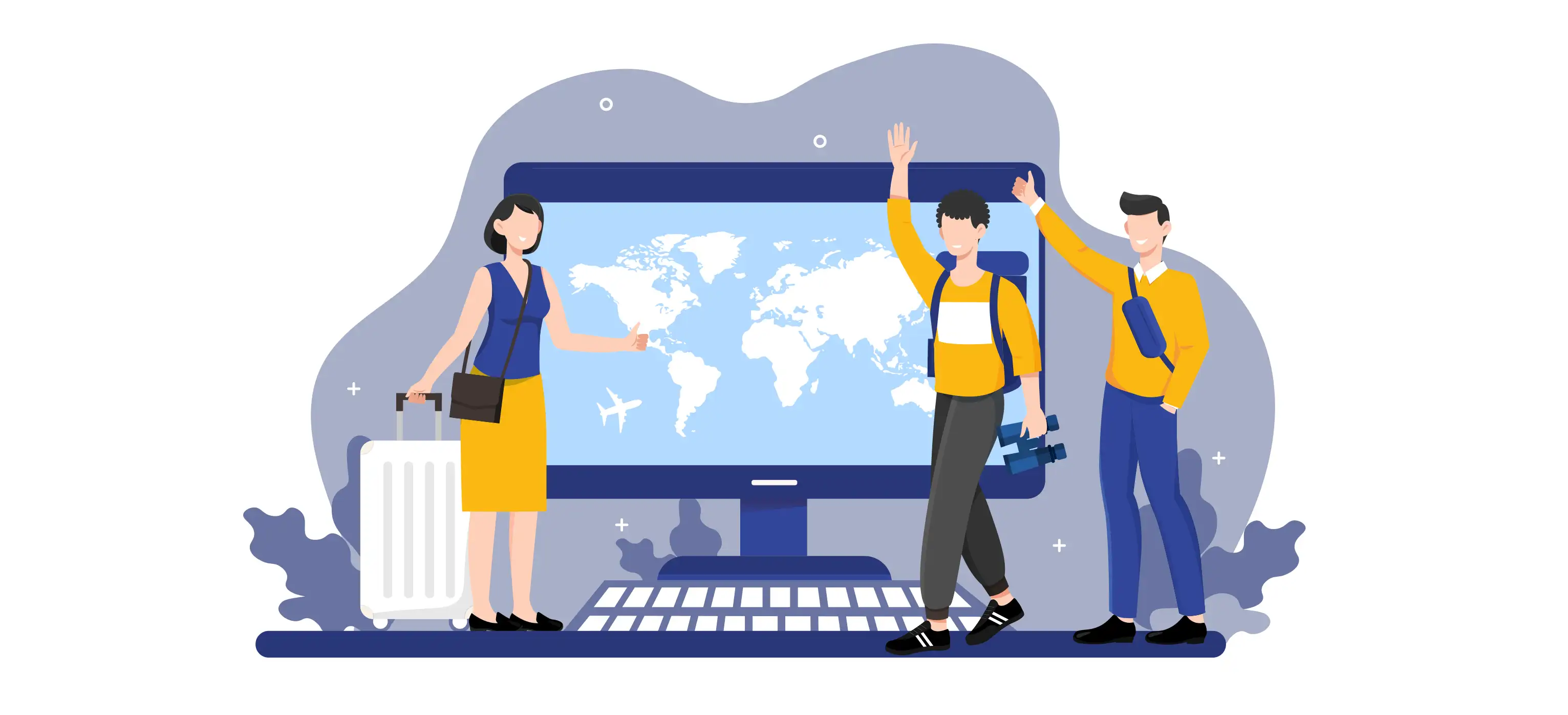
Traveling to a new country is exciting, but speaking a different language can make things tricky. For students and professionals gearing up for a trip to Germany, communication hurdles can hinder their experience. This blog serves as a lifeline for those venturing to Germany, offering essential German phrases for effective communication.
Tailored for travelers seeking to connect with locals, it provides a straightforward guide to mastering basic conversational skills. With these tools, students and professionals can confidently explore Germany's vibrant culture and make the most of their travel experience.
Understanding basic German phrases is essential for travelers heading to Germany. These phrases serve as bridges, allowing individuals to immerse themselves in the local culture. Overcoming language barriers becomes more accessible, enabling travelers to establish meaningful connections with locals. It goes beyond mere communication; it's about enriching travel experiences and building lasting bonds.
With even a rudimentary understanding of German, travelers, whether students or professionals, can navigate their journeys with confidence and authenticity. Mastering basic German phrases is not just about words; it's an investment in a more profound and fulfilling travel adventure.
Check Out the Common German Words You Need to Know
Traveling to Germany can be an exciting adventure, but it's essential to be equipped with some basic German phrases to navigate effectively and communicate with locals. Below are essential phrases divided into categories to help you in various situations.
This is a formal way to greet someone in German. It can be used in any situation, from meeting a new person to entering a store.
This is a common word used to make a request. It can be used in any situation, from asking for directions to ordering food.
This is a common way to express gratitude. It can be used in any situation, from receiving a gift to being helped with a task.
This can be used to get someone's attention, apologize for bumping into someone, or ask for permission to pass.
This is a formal way to say goodbye in German. It can be used in any situation, from leaving a meeting to saying goodbye to a friend.
This is a formal way to ask someone how they are doing. It can be used in any situation, from meeting a new person to catching up with an old friend.
This is a helpful phrase to let people know that you are not fluent in German. It can help to set expectations and avoid misunderstandings.
This can be used to ask for directions to a specific location. It is helpful to know the name of the place you are looking for or to have a map or GPS to help you find your way.
This is a polite way to ask for assistance. It can be used in any situation, from getting directions to finding a lost item.
This is a helpful phrase if you struggle to communicate in German. It can help you to find someone who can speak English and help you with your needs.
This can be used to order food or drinks at a restaurant or cafe. It is helpful to know the name of the dish or drink you want, or to point to it on the menu.
This is a specific example of how to use the phrase "Ich hätte gerne..." to order a cup of coffee.
This can be used to ask for the bill at a restaurant or cafe.
This can be used to ask for directions to the train station. It is helpful to know the name of the train station you are looking for, or to have a map or GPS to help you find your way.
This can be used to buy a ticket to a specific destination. It is helpful to know the name of the destination you are traveling to, and the type of ticket you need (e.g., one-way, round-trip, etc.).
This can be used to find out when the next train is departing. It is helpful to know the name of the train station you are departing from, and the destination you are traveling to.
This can be used to call for help in an emergency situation.
This can be used to let someone know that you are lost. It is helpful to know the name of the place you are trying to find, or to have a map or GPS to help you find your way.
This can be used to call for medical assistance in an emergency.
This can be vital if you need to report a crime or get help in a dangerous situation.
Learning some basic German phrases for travel can significantly enhance one's experience in Germany. By acquiring the ability to communicate with locals, individuals can smoothly order food, seek directions, and navigate confidently. Therefore, before starting the journey, investing some time in learning a few essential phrases is advisable. This preparation ensures travelers are well-equipped to enjoy their trip to Germany to the fullest.
Also Read: 20 Phrases Every German Beginner

English Language and Soft Skills Trainer
Ms. Shereen Backer is a broad minded English language and Soft Skills trainer with Edoxi Training Institute, Dubai. She is fascinated about training young minds and professionals to reach new heights in their career. Her vast experience as an English language and soft skills trainer enables her to handle training sessions for students from diverse cultures.
Ms. Shereen challenges her students to be the best version of themselves. She holds strong records of accomplishment with TESOL/TEFL Certification and IDP Teacher’s Training Program Accreditation.
For the last seven years, she has been working with companies and universities as an ESL/EFL verbal trainer cum academic and career counsellor. She helped more than 500 individuals to clear exams like IELTS, PTE, TOEFL, OET, DET, PSAT, NMSQT and SAT. She also specialises in voice and accent training for English language students.
